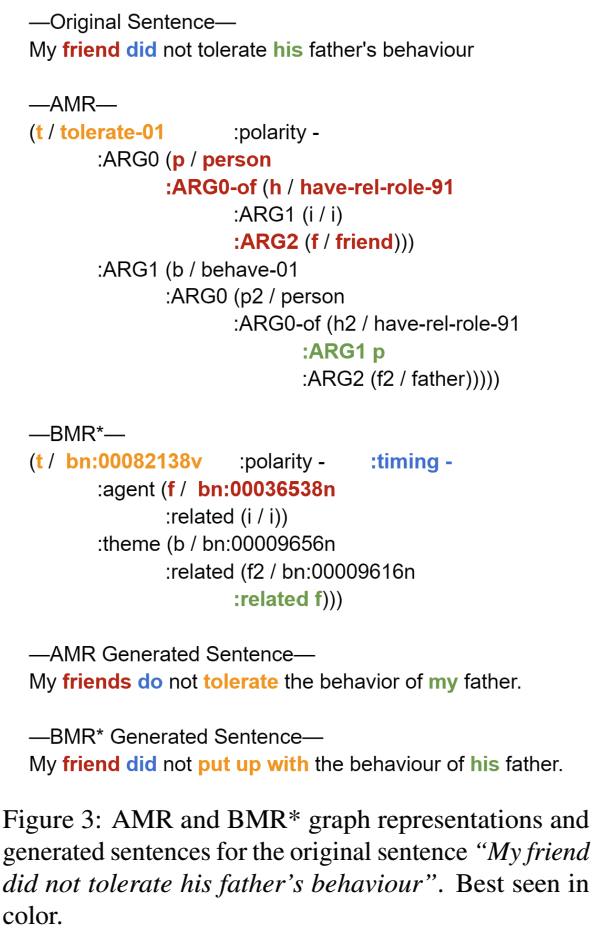This paper presents the BabelNet Meaning Representation (BMR), an interlingual formalism that abstracts away from language-specific constraints by taking advantage of the multilingual semantic resources of BabelNet and VerbAtlas. They map PropBank frames and arguments to VerbAtlas then map VerbAtlas frames to BabelNet synsets. BMR 1.0, converted from AMR 3.0, creates a more difficult task for parsing and a much easier task for text generation and translation.

Comments
- It’s good to see numbered arguments are gone.
- Frames in BabelNet are difficult to read.
Rating
- 5: Transformative: This paper is likely to change our field. It should be considered for a best paper award.
- 4.5: Exciting: It changed my thinking on this topic. I would fight for it to be accepted.
- 4: Strong: I learned a lot from it. I would like to see it accepted.
- 3.5: Leaning positive: It can be accepted more or less in its current form. However, the work it describes is not particularly exciting and/or inspiring, so it will not be a big loss if people don’t see it in this conference.
- 3: Ambivalent: It has merits (e.g., it reports state-of-the-art results, the idea is nice), but there are key weaknesses (e.g., I didn’t learn much from it, evaluation is not convincing, it describes incremental work). I believe it can significantly benefit from another round of revision, but I won’t object to accepting it if my co-reviewers are willing to champion it.
- 2.5: Leaning negative: I am leaning towards rejection, but I can be persuaded if my co-reviewers think otherwise.
- 2: Mediocre: I would rather not see it in the conference.
- 1.5: Weak: I am pretty confident that it should be rejected.
- 1: Poor: I would fight to have it rejected.
0 voters
